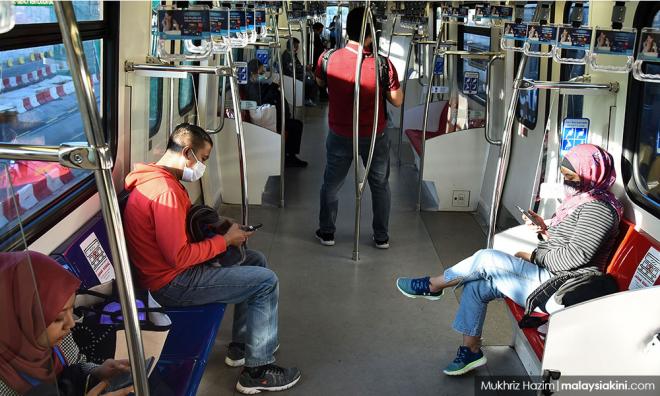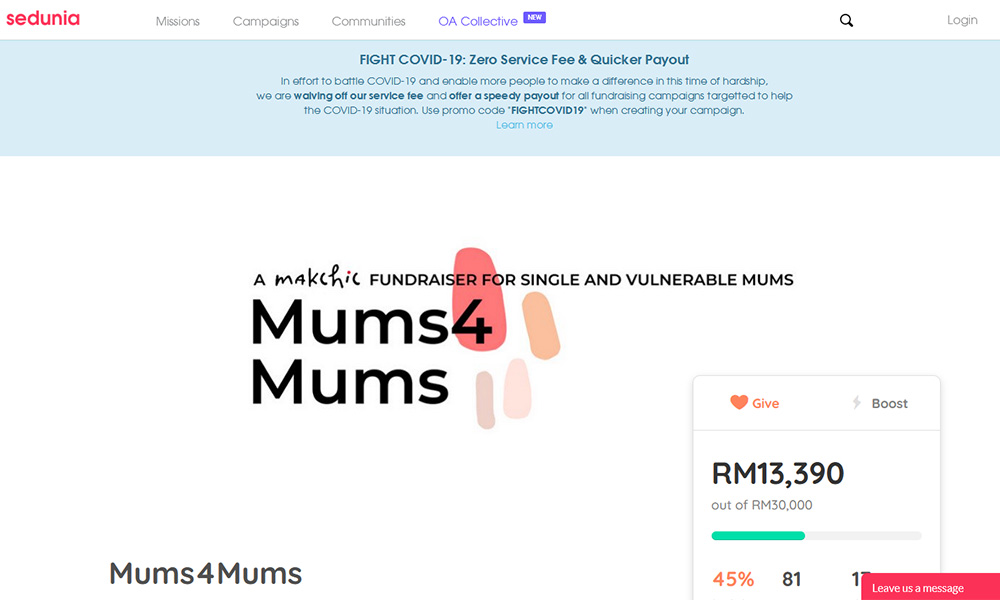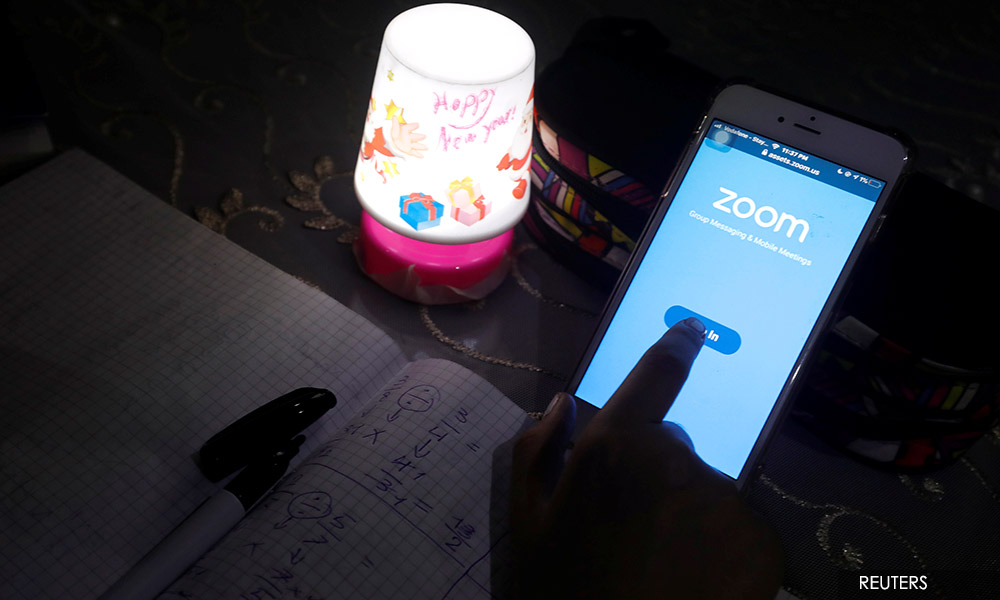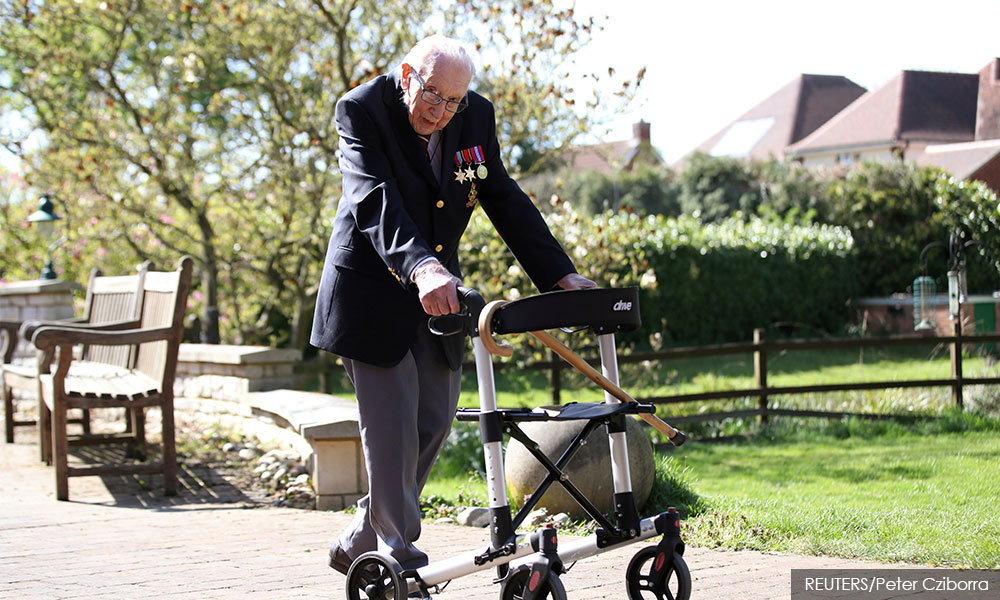
Last week, Defence Minister Ismail Sabri Yaakob announced that the Malaysian League series of football matches are unlikely to resume, even after the movement control order (MCO) is lifted.
When he made the announcement, the defence minister wasn’t just signalling to footballers what to expect in the months to come. Ismail was also signalling all Malaysians.
Essentially, even when the MCO is lifted, we will all still need to practise physical distancing and refrain from mass gatherings of any kind. For so long as there is no widely-available vaccine against Covid-19, we cannot expect to go back to life before the pandemic. Regrettably, not even to celebrate Hari Raya Aidilfitri at the end of May.
Given that a vaccine will take at least a year, and continued self-restraint and unwelcome challenges will remain the order of the day, what are some ways in which we can get through this MCO and what’s beyond?
The first thing public health authorities and the media should consider doing is to stop calling our distancing measures “social distancing”. A far more accurate term would be “physical distancing”.
The fact is, while we may be physically distant, that hasn’t stopped citizens around the globe from being socially closer. For example, The Guardian columnist George Monbiot cites inspiring stories of how the virus has turned people into caring neighbours.
From India to China to South Africa to the US and all across Europe, Monbiot declares that “communities have mobilised where governments have failed”.

So many pockets of incredible Malaysians are doing the same here. Just check out any of the initiatives using the trending #KitaJagaKita hashtag. My friend Koh Lay Chin has also organised a Mums4Mums fundraiser, “to help vulnerable and single mums affected by the pandemic and MCO” in Malaysia. She lives and works all the way in London and the distance clearly hasn’t stopped her.
In so many ways, we are closer to one another during this pandemic than before, despite having to keep a physical distance. Indeed, since the MCO started in Malaysia on March 18, I’ve expanded my professional network globally, started new collaborations with my coaching mentors in Australia and the UK, and reconnected with friends abroad I haven’t spoken to in more than a year.
On one particular day, I had four meetings – one with someone in the UK, another with new professional contacts in Australia, and two with my business collaborator in Singapore.
And throughout the MCO, I’ve chatted far more with family and friends, neighbours and the security guards, and the farmer who maintains the neighbourhood vegetable garden – all from the required distance, of course.
So, yes, physical distancing doesn’t necessarily mean being socially distant from one another. This is an important distinction to make. And it is an important public message that needs to be broadcast. Why?
Well, firstly because it would be more accurate. Language helps us make sense of our reality. And accurate language helps us understand our reality much better than inaccurate language. Take for example how “climate change” doesn’t invoke the same urgency as “climate collapse” when urgency is what is needed to save humanity from a climate crisis of our own making.
Similarly, “physical distancing” doesn’t invoke the same dread as “social distancing”. As a species, we are wired to be social creatures. When the public health authorities ask us to be socially distant, this is a huge ask because it goes against our nature to be socially distant.

Hence, calling it “physical” instead of “social” distancing would help the public reconcile the stress of being physically distant from our family, friends and communities. It would help us feel less put out if we knew we could still be socially connected, despite the MCO. It might even mean being more socially connected because now we have more time for those interactions.
Imagine the difference that would make to how someone might think about the sacrifice of the MCO and any other distancing measures that are put in place beyond the MCO.
What’s a second thing we could do to help us get through this tunnel when it’s unclear where the end of the tunnel is?
In an opinion piece in The New York Times, Emily Esfahani Smith asks the question of how people can cope with the emotional stress of “this confusing and challenging time”. Her research finds that looking for meaning, not happiness, is what will help us bear this crisis and even grow from it.
“The things that make our lives meaningful, like volunteering or working, are stressful and require effort. But months later, the meaning seekers not only reported fewer negative moods but also felt more ‘enriched’, ‘inspired’ and ‘part of something greater than myself’,” Smith writes.
“It’s not the adversity itself that leads to growth. It’s how people respond to it,” she adds.
So, how will we respond to this adversity we’re facing as individuals and as communities?
I’m already inspired by Nur Afiqah Rahmat and Raja Alisya Raja Fajar, who will be using the online game Animal Crossing to host their Aidilfitri gathering for friends. Organising a gathering of friends remotely and making it thematic so that your community can still celebrate Aidilfitri, now that’s an example of doing something meaningful. It’s also an example of how being physically distant doesn’t inevitably mean being socially distant.
And then there was the women’s group in Shanghai that initiated a donation drive to send personal hygiene supplies 644 kilometres away, to healthcare workers in Wuhan. Even though their attempts were initially rebuffed, and then criticised online, and despite the logistical challenges, they kept at it.
“At first, no one cared about women’s needs. We were a small Band-Aid, addressing a small part of the population,” Sakura Chan, founder of the non-profit GirlsUp said. “Then suddenly we were a topic of discussion.”
And my all-time favourite role model during Covid-19 for someone who has done something beyond meaningful is the UK’s Captain Tom Moore. The World War II veteran, who will turn 100 at the end of this month, hoped to raise £1,000 for the UK’s National Health Service by completing laps around his garden with his walking frame.

After receiving media attention, Moore has collected more than £28.6 million and broken the Guinness World Record for the most money raised by an individual through a walk.
The third idea for seeing us through this tunnel is for our public health authorities to consider allowing the practice of “quarantine buddies” if distancing is going to be extended for a longer period. This is an idea from Professor Stefan Flasche, epidemiologist and mathematical modeller at the London School of Hygiene and Tropical Medicine.
Flasche, who uses the formal term “contact clustering”, is plugging this experimental concept into his model. What it means is that a couple of families or groups of friends could agree to form an exclusive social pod. Everyone in this circle would still avoid those outside their social pod for non-essential interactions. But within one’s exclusive pod, there can be social and physical contact.
Each pod member would need to be faithful to the pod, like sexual partners who are mindful of not wanting to pass sexually-transmitted diseases around. And they would, of course, take precautions if they needed to engage with people outside their pod. As Gaby Hinsliff writes in The Guardian, “if the worst happened, and someone did accidentally bring the virus home, at least it should be relatively easy to trace contacts and contain the spread.”
The fact is, physical distancing isn’t going to end anytime soon even though parts of Europe are easing up on their lockdowns. The chief medical officer for England has warned of “disruptive” physical distancing measures lasting at least to the end of this year. And Scotland’s first minister, Nicola Sturgeon, is already talking about extensions into 2021.
In Malaysia, the prime minister’s public health advisor, Dr Jemilah Mahmood, has already said physical distancing must continue for at least six months after the MCO is lifted to ensure the pandemic is completely over. Additionally, the Academy of Medicine of Malaysia has stressed the importance of “responsible behaviour” until a vaccine is available, lest all that is gained from the MCO is overturned from too-early a relaxation.
We are clearly not out of the tunnel of this global pandemic yet. And we don’t know when we will be. And if we can’t yet see the light at the end of the tunnel, it might be a good idea to turn on some light in the middle of it.
JACQUELINE ANN SURIN is an online trainer and facilitator, a Drama@Work consultant, and a leadership coach. She was an award-winning columnist, a journalist for 20 years, and the co-founder of The Nut Graph before switching careers. - Mkini



No comments:
Post a Comment
Note: Only a member of this blog may post a comment.